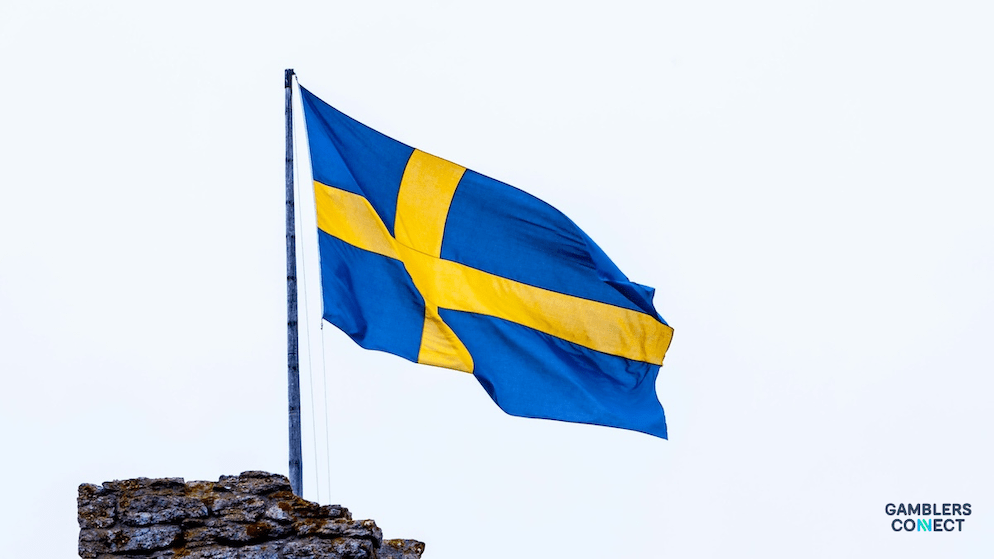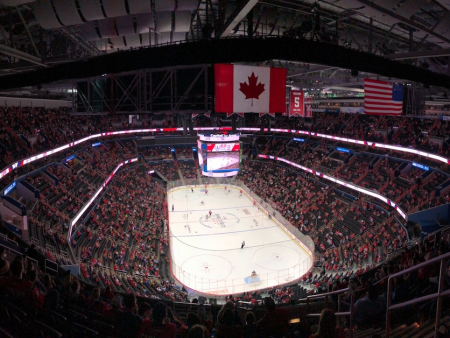
The Swedish gambling sector has experienced a major shift in recent years, which has resulted in a considerable increase in players engaging in betting without a Swedish license. Since Sweden implemented its national gambling license in 2019, a significant portion of Swedish gamblers has started looking beyond the nation’s borders for online casinos and betting platforms not licensed within Sweden.
Casinos situated in other countries, frequently licensed in international hubs like Malta, the United Kingdom, and Curacao, have gained substantial popularity. This article examines the factors and methods behind the growing prominence of non-licensed casinos in Sweden, or betting without a Swedish license, explores their appeal to players, and considers the effects on the Swedish gambling market.
What the Swedish Licensing System and Its Limitations Are
In January 2019, Sweden enacted a new Gambling Act that fundamentally re-regulated its market. This reform ended the state’s monopoly, creating a licensing framework for commercial operators overseen by the Swedish Gambling Authority (Spelinspektionen). The objective was to guide the majority of online gambling activities into a regulated, taxed environment with strong consumer protection measures.
The Swedish licensing framework also imposes strict rules for responsible gambling. For example, operators are limited to offering a single, small welcome bonus per customer; no subsequent recurring promotions or VIP programs are permitted. Players on Swedish-licensed sites must also use safety features like self-set deposit limits, mandatory breaks during gameplay, and identity verification through BankID. Furthermore, all licensed platforms are linked to Spelpaus, the national self-exclusion registry, ensuring that anyone who registers is automatically blocked from every legal gambling site in Sweden.
While these regulations have certainly made the Swedish market safer and more transparent for consumers, they have also made the gaming experience feel overly restrictive for some frequent players. Shortly after the new rules took effect, a cohort of Swedish gamblers—especially those looking for more substantial bonuses or fewer limitations—started to seek more accommodating alternatives abroad.
The Story of Casinos without a Swedish License
Almost as soon as the new regulations were in place, interest in “casino utan svensk licens”—which translates to “casino without a Swedish license”—began to grow. Numerous foreign gambling operators that chose not to acquire a Swedish license continued accepting Swedish players from outside the country. These platforms are often available in Swedish, accept Swedish currency (SEK), and function under international licenses that are not bound by Sweden’s gambling laws. While Swedish authorities view them as unlicensed or “illegal” operators within Sweden, they are often fully licensed and legal in other jurisdictions.
Multiple industry metrics confirm the rise of these offshore casinos and betting platforms. The proportion of Swedish players using unlicensed sites has grown, now representing a notable segment of the market. The Swedish Gambling Authority reported that the “channelisation” rate—the share of gambling conducted on licensed websites—was around 85% in 2024, a decrease from 86% the year before.
This indicates that roughly 15% of the Swedish gambling market is now taking place on unlicensed sites, a figure that has raised some alarm. This is particularly pronounced in online casino gaming, where certain estimates suggest about a quarter of all money wagered by Swedes in online casinos goes to offshore platforms instead of domestic ones. (Prior to re-regulation, most online gambling by Swedes occurred on sites with foreign licenses; the 2019 legislation initially brought much of that activity into the regulated fold, but that trend has since partially reversed.)
Moreover, some major international gambling companies that initially entered the regulated Swedish market later decided to leave, finding the conditions too restrictive or unprofitable. Their Swedish customer base either stopped gambling or followed them to offshore platforms.
Swedish regulators have tried to curb this offshore movement with measures like payment blocking, where banks were directed to stop transactions to unlicensed gaming sites in 2023. However, determined players have typically discovered methods, such as using e-wallets or cryptocurrencies, to bypass these blocks. The term has become synonymous with a parallel digital gambling environment that exists just beyond the reach of national regulation.
By the mid-2020s, “casino utan licens” had become a common phrase among Swedish gamblers. It signifies a vibrant, though unofficial, online gambling scene operating outside the formal Swedish framework. A de facto dual market has formed, with the licensed domestic market and its strict controls on one side, and the shadow market of foreign casinos operating without them on the other.
Why Do Players prefer Betting Sites Without a Swedish License?
The growing popularity of gambling outside Sweden’s licensed system is primarily driven by players seeking greater freedom, value, and options. While Swedish-licensed platforms are secure and well-monitored, they offer a comparatively constrained gambling experience with many limitations. In contrast, casinos and betting sites licensed in other countries can present a more attractive proposition for certain players. Below are some key draws that make these offshore platforms popular among Swedes:
Generous Bonuses and Promotions: A primary attraction is the availability of bonuses. Swedish regulations permit operators to provide only one small welcome bonus to a customer and nothing further. This restriction does not apply to foreign casinos without a Swedish license, which consistently offer new promotions to retain player interest. For instance, a Swedish player at a Malta- or Curacao-licensed site can access a large, multi-stage welcome package with a high match bonus, free spins, and bonuses on later deposits. They provide weekly reload offers, cashback deals, loyalty rewards, and other incentives unavailable on regulated Swedish sites. For a regular player, these benefits significantly enhance the value and enjoyment of the experience.
Reduced Gameplay Restrictions: Beyond bonuses, offshore sites allow players to bypass many gameplay limitations imposed by Swedish law. Regulated platforms in Sweden mandate that players establish strict deposit limits and take compulsory breaks from play. While these tools aim to promote responsible gaming, some seasoned gamblers perceive them as intrusive. By playing at a foreign casino, a player effectively opts out of these rules. Offshore platforms frequently have much higher deposit limits, no required pauses in play, and give users the liberty to manage their own boundaries. For example, when Sweden implemented a temporary deposit cap (around 5,000 SEK weekly), many high-stakes players moved to international operators without such limits.
Wide Game Variety: International casinos typically boast much larger game selections than their Swedish-licensed counterparts. This is because all games must be certified for the Swedish market, which can limit the available titles. Not all game developers or high-jackpot slots gain approval, especially if they contain features disallowed by regulators, such as autoplay. Furthermore, new or niche gambling products may not be offered on Swedish sites. In contrast, international platforms feature thousands of games from numerous global providers. A Malta-licensed operator might offer new verticals like esports betting or crash-style games that a Swedish operator cannot. This addresses players’ desire for novelty and innovation.
Privacy and Anonymity: Playing on a Swedish-licensed platform involves significant oversight. All activity is linked to a user’s identity via BankID, a national digital ID system connected to bank accounts. While this ensures security, some are uncomfortable with their betting habits being so closely tracked. Foreign casinos offer a degree of anonymity. Registration can be as simple as providing an email address, and some sites allow play without extensive sign-up procedures, especially when depositing with cryptocurrency. This allows players to gamble more discreetly, as transactions made with an e-wallet or crypto will not appear on their bank statements.
Bypassing Self-Exclusion (Spelpaus): Although a controversial topic, this is a significant driver. A player registered with Spelpaus is blocked from all licensed Swedish sites until their self-exclusion period ends. Some who self-exclude later regret it and wish to gamble again. Their only option is to use sites not connected to Spelpaus. Surveys indicate that a substantial portion of those who play on unlicensed sites in Sweden have self-excluded via Spelpaus. This trend is problematic as it undermines the safety measures designed to protect vulnerable players, but it contributes to the traffic on casinos without a Swedish license.
Foreign Licenses: Exposing the Mystery Behind Offshore Casinos
It is critical to understand that a “casino without a Swedish license” does not necessarily mean an unlicensed casino. Most offshore platforms that attract Swedish players are licensed by foreign regulatory bodies. These licenses allow them to operate legally in their respective jurisdictions and signal trustworthiness to players.
Three licensing authorities are commonly seen in this space: the United Kingdom, Malta, and Curacao. The United Kingdom Gambling Commission (UKGC) is among the world’s most stringent regulators. A UKGC license is a strong indicator of integrity, though these casinos often focus on UK players.
Malta, an EU member, is a major hub for online gaming companies serving multiple countries. The Malta Gaming Authority (MGA) license is highly regarded and often preferred by casinos targeting European markets. An MGA license ensures adherence to strict rules on player fund protection, data security, game fairness audits, and anti-fraud measures. Additionally, winnings from a casino licensed in an EU/EEA country like Malta are tax-exempt for Swedish players, making MGA-licensed sites especially appealing.
Curacao is another popular jurisdiction, favored by many newer online casinos, particularly those accepting cryptocurrency. The Curacao eGaming license is easier and less costly to acquire, which can mean less stringent oversight compared to UK or MGA-licensed casinos. While these sites are known for generous bonuses and crypto features, winnings are not tax-free for Swedish players. Nonetheless, these foreign licenses permit operators to function legally outside Sweden.
From the Ground Up: An Industry Perspective
Professionals within the iGaming industry have closely monitored the rise of non-Swedish licensed casinos. Anders Larsson from www.casino-utan-svensk-licens.net, a respected iGaming expert who has long followed the Swedish market, notes that EU-licensed online casinos have become the top choice for Swedes seeking alternatives. He believes these platforms offer an appealing compromise for players.
“Playing at a casino that the EU licenses is the choice for most Swedes who play abroad, because these places can offer high bonuses and a large selection of games with fewer uncertainties compared to playing at a foreign jurisdiction,” explains Larsson.
He adds that casinos under an MGA license provide “the best of both worlds—they can enjoy larger incentives and more freedom, while still enjoying the confidence in top consumer protection and their winnings are tax-free.” This perspective suggests that well-regulated EU casinos can deliver the excitement and rewards that Swedish gamblers feel are absent in the domestic market, while maintaining a trusted standard of security. Many industry insiders see this trend as a logical response to the strictness of the Swedish system, arguing that players are not seeking out rogue sites but rather reputable international operators when the local market falls short.
Possible Risks and Considerations for Players
Although there are advantages to playing at casinos without a Swedish license, there are also inherent risks. Players should be aware of these before engaging with offshore sites.
First, the lack of connection to Spelpaus means there is no comprehensive safety net if gambling becomes problematic. On Swedish platforms, a self-excluded individual is blocked nationwide. On foreign sites, self-control is entirely up to the individual. While many offshore casinos offer responsible gambling tools, they are not interconnected. A player can self-exclude from one site and immediately play on another, placing a greater emphasis on personal responsibility.
Another issue is consumer protection and dispute resolution. When playing on a site outside Sweden, you are not protected by Swedish law. If a casino withholds winnings or imposes unfair terms, Spelinspektionen cannot intervene. Your recourse is to file a complaint with the site’s licensing authority, a process that can be slow and uncertain. By stepping outside the Swedish licensed system, a player forgoes a significant layer of legal and regulatory protection.
These risks do not deter thousands of Swedes who prefer offshore gambling. However, it is crucial to approach betting without a Swedish license with caution. This involves performing due diligence to select reliable sites with valid licenses, setting personal limits, and understanding that greater freedom comes with increased personal and financial responsibility.
Making the Market More Competitive
The sustained rise of casinos without a Swedish license highlights the delicate balance between player protection and creating an attractive gambling environment. Sweden’s strict regulations have enhanced consumer safety but have also inadvertently pushed some players toward more permissive offshore alternatives. Regulators now face the challenge of adjusting policies to make the licensed market more appealing and reduce the incentive to gamble elsewhere.
For players, the availability of foreign casinos means more choice and freedom. Yet, this freedom necessitates self-reliance for staying safe without the protections of the Swedish system. As the industry evolves, it remains to be seen whether Sweden will modify its regulatory approach or if the trend of offshore gambling will continue to grow. What is evident is that Swedish gamblers are already looking globally to find their ideal gaming experience.





